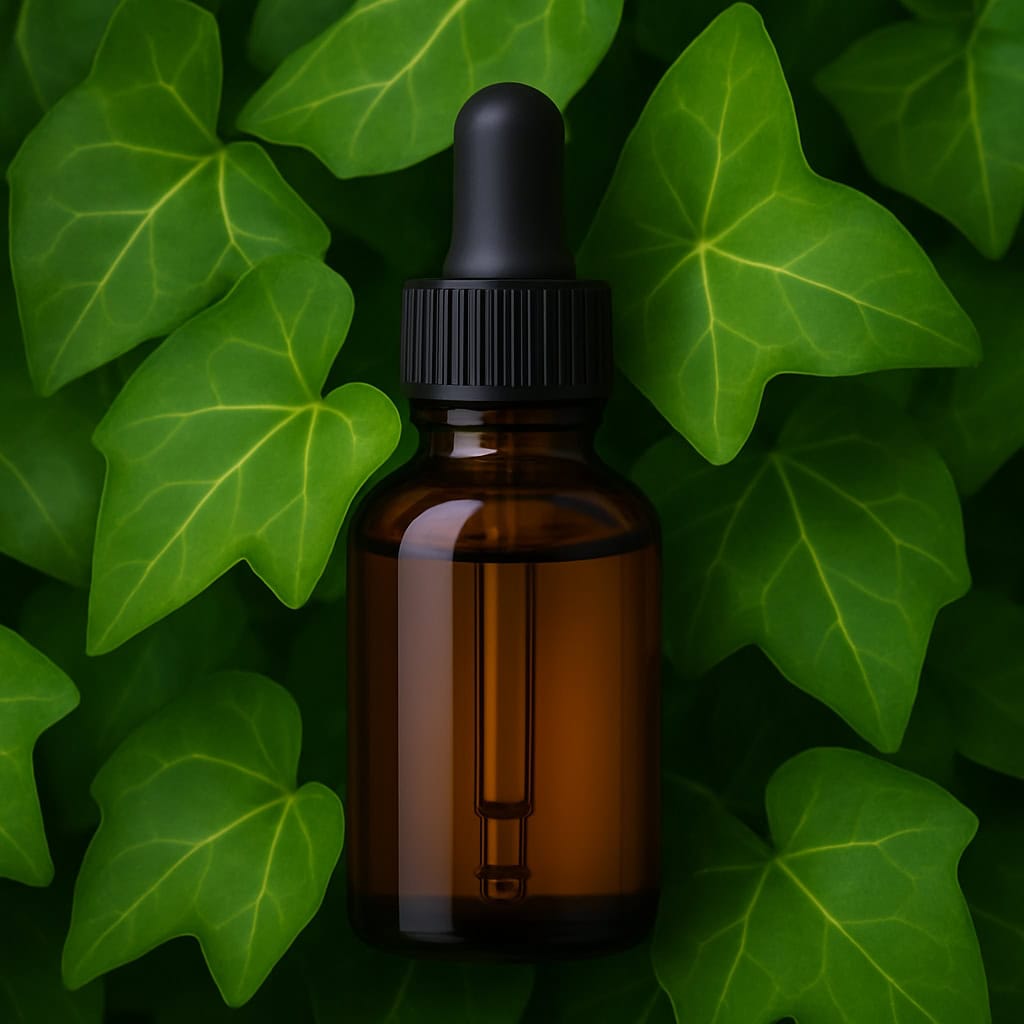Ivy Leaf Extract for Cough
Many people are turning to ivy leaf extract for cough as a gentle way to support respiratory health this season. As a form of natural cough support, this traditional herb is gaining renewed interest—especially as allergy triggers and air pollution continue to rise.

Natural Cough Support Backed by Tradition
Spring may be a season of renewal, but it can also bring seasonal discomforts. Between fluctuating temperatures, blooming plants, and air pollution, seasonal changes can challenge even healthy lungs. When coughs linger, some look beyond conventional remedies toward herbal solutions with deep historical roots.
One such option is Hedera helix, commonly known as English ivy. For centuries, ivy leaf has been used in traditional European herbalism to ease coughs and support respiratory comfort. Ancient Greek and Roman healers reportedly used it for chest complaints, while folk medicine practitioners later prepared ivy leaf teas, tinctures, and poultices for similar purposes.
What the Research Reveals
Over the past few decades, researchers have studied ivy leaf for its potential effects on cough and congestion. A 1993 double-blind study published in Zeitschrift für Allgemeinmedizin compared ivy leaf extract to ambroxol, a pharmaceutical expectorant, in individuals with chronic bronchitis. The study reported that participants in both groups experienced similar outcomes in symptom improvement.
In 2006, a randomized, placebo-controlled trial published in Arzneimittelforschung examined a combination of ivy and thyme extracts in adults with acute bronchitis. Researchers observed that the group receiving the herbal combination had fewer coughing fits and shorter symptom duration compared to the placebo group.
Pediatric Study Findings
A 2020 observational study published in Wiadomości Lekarskie followed over 5,000 children aged 2 to 12 who were given a syrup containing ivy leaf dry extract for productive cough. According to the study, participants showed a reduction in cough frequency and intensity over the treatment period. The researchers also reported no serious adverse effects during the study.
Stronger Evidence
A meta-analysis published in Scientific Reports (November 2022; 12:20041) reviewed two randomized, double-blind studies involving 386 participants experiencing acute cough or bronchitis. Each participant received either 15 mL of ivy leaf extract or a placebo daily over the course of seven days.
According to the published results:
-
Participants in the ivy extract group experienced a greater reduction in reported cough frequency and intensity
-
Bronchitis Severity Scores showed more improvement in the ivy group compared to placebo
-
81.1% of individuals taking ivy extract rated themselves as “well” or “very well” by the end of the study, versus 45% in the placebo group
-
No serious adverse events were reported
These findings reflect the outcomes observed within the study group and contribute to the growing body of research examining ivy leaf extract in the context of acute respiratory symptoms.
Supporting Wellness Through Seasonal Shifts
As pollen counts rise and air quality continues to pose challenges, many are turning to nature for gentle, seasonal support. With a history of use dating back centuries and growing scientific interest, ivy leaf extract for cough stands out as a time-honored option.
Whether you’re managing mild respiratory discomfort or navigating environmental irritants, ivy leaf may offer support. Its benefits are rooted in both historical use and modern research. Ivy leaf extract is available in many forms, including syrups and liquids. At Martindale’s, we carry it in tablet form through Bronchial Clear by Terry Naturally. This trusted formula features the same time-honored herb used for centuries.
Though it is not a cure, ivy leaf extract is still being explored for its potential role in easing occasional respiratory irritation. Individual experiences may vary, but interest continues to grow. Let this season of change remind us of nature’s wisdom. May it guide us toward a future grounded in healing and the enduring gifts of the earth.
These statements have not been evaluated by the FDA. They are not intended to treat, diagnose, cure or prevent any disease.
